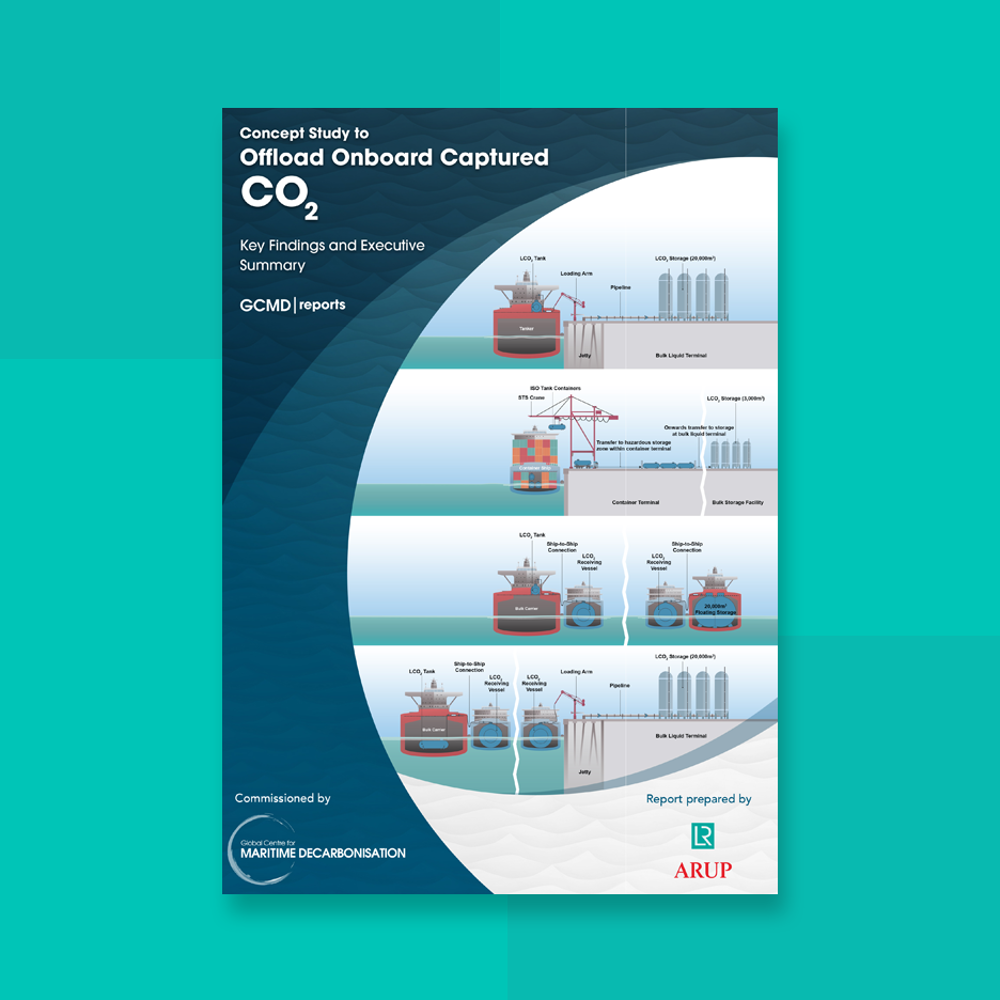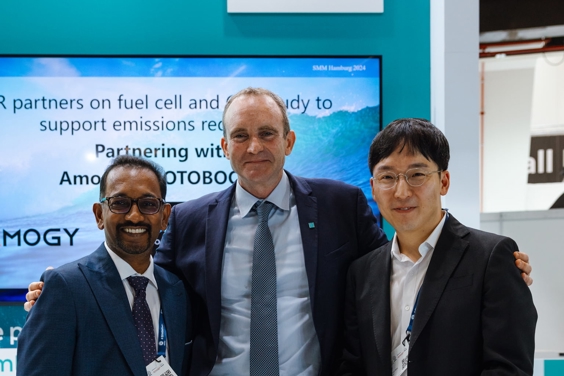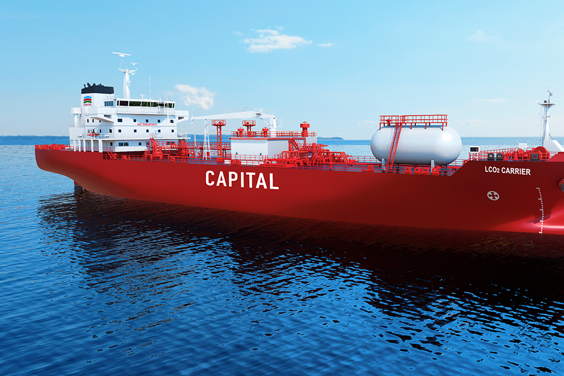A new report from GCMD, LR and Arup has found that a of lack suitable port infrastructure is the main obstacle to Onboard Carbon Capture and Storage adoption.
Onboard Carbon Capture and Storage (OCCS) has seen a surge of interest over the last two years as stakeholders in the maritime value chain seek to limit their carbon emissions. Nine months ago, Lloyd’s Register, the Global Centre for Maritime Decarbonisation (GCMD) and Arup announced a study aimed at addressing safety and operational considerations surrounding the offloading of LCO2 (liquid carbon dioxide) that has been captured onboard tankers, bulkers and container liners.
With the conclusion of this study, key findings have identified that low port readiness presents a major hurdle to the adoption of OCCS systems as a practicable decarbonisation solution.
Complementing the GCMD’s Project REMARCCABLE (Realising Maritime Carbon Capture to demonstrate the Ability to Lower Emissions) this offloading study addresses the feasibility of OCCS as a practicable, end-to-end solution at scale. For OCCS systems to be operationally feasible, the industry needs to develop a collaborative ecosystem to enable the value chain for managing captured CO2.
The study examines over ten planned LCO2 related infrastructure projects worldwide projects which are likely to handle much larger volumes of captured CO2 than that from OCCS systems. These examples highlight how port infrastructure needed for offloading, storing and transporting onboard captured CO2 will likely need to be integrated with these projects for economies of scale.
The study also investigates the concepts for safe offloading of LCO2 alongside the safety considerations for its onward handling.














